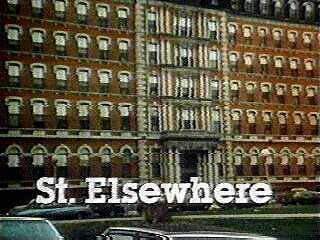Welcome to Retro Television Reviews, a feature where we review some of our favorite and least favorite shows of the past! On Fridays, I will be reviewing St. Elsewhere, a medical show which ran on NBC from 1982 to 1988. The show can be found on Hulu and, for purchase, on Prime!
This week, Dr. Craig does the unthinkable …. maybe.
Episode 1.20 “Craig In Love”
(Dir by Victor Lobl, originally aired April 12, 1983)
Dr. Craig is indeed in love in this episode. He’s totally smitten with the Hungarian Dr. Vera Anya and, when his wife Ellen (played by Bonnie Bartlett, real-life wife of William Daniels) goes out of town to visit her mother, Craig makes plans to show Dr. Anya around the town and maybe more….
Ugh. Seriously, I don’t like the idea of Dr. Craig cheating on his wife and, though this episode leaves it ambiguous as to what actually happened, it totally appears that’s what Craig did over the weekend. Dr. Craig is pompous and full-of-himself and rude to almost everyone he talks to but it’s always appeared that he totally loved his wife. The whole idea of him thinking about cheating — much less actually doing it — just doesn’t seem right for his character. And, quite frankly, Dr. Anya wasn’t really that intriguing of a character so if Craig did share more than just that passionate goodbye kiss with her …. well, I prefer to pretend this entire storyline didn’t happen.
Far more interesting was the malpractice suit brought against Dr. Chandler and Nurse Daniels. As the hospital’s lawyer explains it, there really isn’t much of a case to be made for malpractice. Instead, the dead man’s family is just hoping to get a quick settlement out of it. Most doctors aren’t willing to pay the legal fees and don’t have the time to go to court. Chandler, however, is personally offended by the suit and pledges to do whatever he has to do fight it. Yay, Chandler! Seriously, I hate people who try to bully people into settlements. After my Dad died, there was this crazy woman who thought she could bully his estate into giving her half a million dollars. Instead, she received nothing and that’s exactly what she deserved. Both Denzel Washington and Ellen Bry gave good performances this week. Ellen Bry’s Nurse Daniels is quickly becoming one of my favorite characters. She doesn’t let anyone push her around.
Speaking of pushing people around, Dr. Morrison finally got sick of Dr. White’s drug addiction and the two of them ended up having a fist fight in the men’s room. Still, when White later crashed his girlfriend’s car and needed to be bailed out of jail, Morrison was the first person that he called. Morrison, being a saint, got White out of jail. White, being a jerk, barely even said thank you. Morrison went to Westphall with his concerns about Dr. White. Westphall responded that it wasn’t his place to give a fatherly lecture. That’s cold, Westphall. What about when he kills a patient because he’s high? Will you care then? No wonder St. Eligius is getting sued for malpractice!
Finally, Dr. Samuels had a cold so he spent the entire episode whining about it. Seriously, Dr. Samuels is one of my least favorite characters of all time.
This episode was uneven for me. I’m not happy about Dr. Craig being a cheater but I am happy that Dr. Chandler is standing up for himself. Dr. White appears to be heading to a very dark place.
There’s only two episodes left in the first season so I’m assuming we’re going to get some sort of closure to at least some of these storylines. We’ll see what happens next week!

